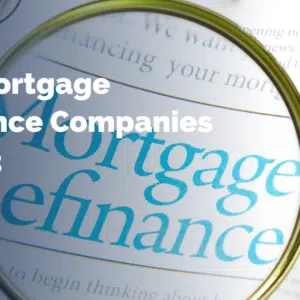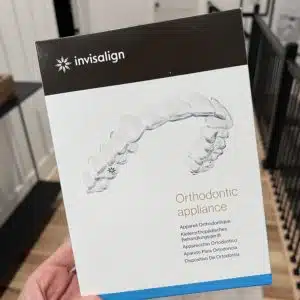Compound interest can be absolute magic for your finances if you’re investing your money or stashing savings in a high-yield savings account, but the opposite is also true. Compound interest is often charged on student loans as they capitalize, which means that interest is charged on interest that has accrued. Add to the fact that rates on student loans can vary greatly depending on credit scores and the student loan provider, and you have a recipe for high costs that can make paying off student loans harder than it needs to be.
With that in mind, it’s smart to look for ways to reduce the interest rate on your student loans. Here are some strategies that can help you accomplish this goal and potentially get out of debt faster.
Table of Contents
- Compare Rates With More Than One Lender
- Go With a Variable Rate Instead of a Fixed Rate
- Choose a Shorter Repayment Term
- Improve Your Credit Score
- Secure a Solid Cosigner
- Refinance Your Student Loans With a Private Lender
- The Bottom Line – The Best Ways to Reduce the Interest Rate on Your Student Loans
Compare Rates With More Than One Lender
Whether taking out a student loan for the first time or consolidating or refinancing your student loans with a private lender, you can get a lower interest rate if you take the time to shop around. Compare rates from at least a few different lenders before you apply. One easy way to check to see what rates you may receive without impacting your credit score is with a pre-qualification tool, like the one from College Ave Student Loans. The tool will show you what rates you can personally receive without impacting your credit score. The best rates and terms tend to go to consumers with good or excellent credit, yet lenders all set their own criteria to determine who qualifies.
With that in mind, you may be able to get a lower rate with some lenders than others, so you should take the time to compare multiple loans before you move forward.
Go With a Variable Rate Instead of a Fixed Rate
When it comes to student loans, choosing a variable interest rate can often be a better deal, although you’ll need to monitor your rate over time. Note that loans with variable rates base their rates on LIBOR or the prime rate, which can change over time. However, loans with fixed interest rates maintain the same APR throughout the life of your loan.
How much can you save with a variable rate? With College Ave Student Loans, for example, variable interest rates in September 2023 start at 5.49% APR, whereas fixed rates start at 4.41% APR.
Choose a Shorter Repayment Term
Also, be aware that you may score a lower interest rate if you go with a shorter repayment term. This can depend on the lender and the exact loan you qualify for, but it may be worth exploring if you don’t mind repaying your student loans over a shorter timeline.
Just remember that shortening your loan term will result in a higher monthly payment. That may be fine if you have room in your budget to keep up with a higher payment and the rest of your bills, but you should make sure you can afford your new loan payment before you commit.
Before you choose a loan with a different repayment term, use a student loan calculator to see what your new payment might be with different repayment timelines. If you can secure a lower interest rate and you can afford the higher payment on a shorter-term loan, refinancing could help you save money and get out of debt faster.
To reduce your interest rate even more, it’s a good idea to sign up for automatic payments. Most lenders, including College Ave Student Loans, offer an interest rate discount for setting up autopay. By setting this up, you can save hundreds of dollars over the length of your loan repayment.
Improve Your Credit Score
The best student loan rates and terms tend to go to consumers with good or excellent credit, although different lenders set their own criteria. Either way, you can position yourself to qualify for a new loan with a superior rate if you take steps to improve your credit score and get it in tip-top shape.
What are the best ways to improve your credit score? The most important factor that makes up your FICO score is your payment history, so make sure you’re paying all of your bills early or on time. The second most important factor is the amount you owe in relation to your credit limits, so paying off debt to reduce your credit utilization is another smart way to boost your credit in a hurry.
Secure a Solid Cosigner
If you are worried your credit isn’t good enough or you simply have a limited credit history that will take time to build, you can also secure a cosigner that can help you qualify for a lower interest rate. Because a loan cosigner mutually agrees to repay your loan right alongside you, their credit score can help you qualify for significantly better rates and terms than you may be able to get on your own.
When it comes to getting a cosigner, however, you should know the risk you’re asking them to take. Your cosigner will be equally responsible for your loan if you don’t repay, so you should take your commitment to paying your loans off seriously.
Refinance Your Student Loans With a Private Lender
While you can consolidate federal student loans with a Direct Consolidation Loan, this government-backed loan product uses a weighted average of your previous interest rates, meaning you can consolidate, but you won’t get a lower APR. Since interest rates on federal loans are fixed, and the same for everyone, the only way to get a lower interest rate than you can achieve with federal student loans is through refinancing with a private student loan lender.
A private lender can help you combine all your current student loans, including federal loans and private loans, into a new loan with a more competitive rate and terms. Just remember that you’ll give up some protections when you refinance federal loans with a private lender, including deferment, forbearance, and access to income-driven repayment plans.

The Bottom Line – The Best Ways to Reduce the Interest Rate on Your Student Loans
Whether your goal is paying off student loans faster or reducing your interest rate so you can pay a lower monthly payment, consolidating student debt with a private lender is often the best way to go. Just remember that you’ll have your best chance at a low APR if you have great credit or a cosigner and that you should spend some time shopping among lenders to ensure you get the best deal.
Your student loans could take years to pay off, so don’t try to rush the process. Conduct due diligence to find the right lender for your needs, and you could enjoy thousands of dollars in savings for years to come.







